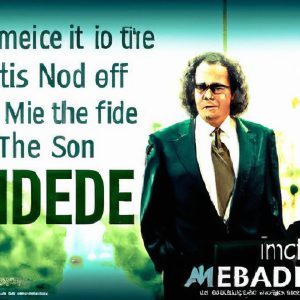LONG ISLAND ESTATE PLANNING ATTORNEY
For residents of Long Island city area, preparing estate plans should be less complicated as they can easily contact a Long Island estate planning attorney, experienced in vast areas of estate laws as required in Long Island. Asides from the fundamental estate plans and laws that includes essential legal documents, the state laws in Long Island rules what may be included or dictate the creation of other estate planning document.
State laws are also very specific about what should be included in a will, revocable living trust, medical or financial power of attorney. Not only that, they also decide who the trustee, health care surrogate, guardian may be as well as the formalities and process in signing a will, testament and observing a revocable living trust. However, consulting with an estate planning lawyer with in preparing the appropriate documents peculiar to your situation.
Estate plan documents
Estate planning is a process of making many important decisions and plans over your future and that of your loved ones. Estate plans, concerns what happen to your assets, finances both while you are alive and well or dead, how you want to share your assets to family, children or spouse, who takes over making certain important decisions for you in cases of mental incapability and lastly transfer of ownership of a property. However, before planning your estate, it is advised you to start to evaluate your estate. To do this, you need to establish the value of your assets like homes or any other property, money and savings, shares and investments as well as any of your other possessions.
This will help you know what plans to make.
The major documents involved in estate planning are:
- Wills and Testament: this is one the most common document always presented in planning your estate. Wills and testament are used in distributing you assets after you pass on. . It also contains provision for appointing a guardian for your children. This only applies in cases of minor children. Although, wills still have to pass through probate in court to be fully implemented for the beneficiary of the will to get their benefits.
- Trust: Trust forms the bases of how your estates are shared or given to beneficiaries, what happens to you when you die and who makes certain financial or medical decisions for you when you are mentally incapable.
Making a decision between a Trust and a Will comes down to personal decisions on your estate plan. There are various types of trust, but majorly the irrevocable and revocable living trust.
Irrevocable trust isn’t an option for most people because once the trust have been funded, there is no retuning on the agreement. Conversely a revocable trust can be ‘undone’ and the assets or property held or given to another beneficiary.
One major importance of a revocable living trust is that, it helps to prevent probate. Through the revocable living trust, the assets or will can be implemented without going through long hard process in court. This is because the trust maker was well alive, when the trust was documented and implemented.
Conversely, an irrevocable trust is a trust document that is file, established and implemented while the trustier is still alive. One of the major benefit of this type of trust is that, it ensures transparency and permanency in transferring assets, it also help reduce the heavy taxes on assets.
- Financial power of attorney: This documents helps prepare for the unseen future by allowing you delegate the person your choice the ability to manage your assets and make important decisions should you become mentally incapable. This documents can be used in two form as a durable power of attorney and a springing power of attorney. The former is used as soon as the documents are signed while the latter comes into full effect when you are mentally incapacitated.
- Advance medical directive: Through an advance medical directive also known as a medical power of attorney, you get to designate a health agent to make medical decisions when you are unable to do so.
It is important to know there is a proper type of estate plan document for every situation, and the only way to do this is by hiring a topnotch estate planning attorney. Contact a Long Island estate planning attorney today.









